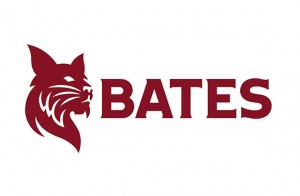
Engendering Time in the Ancient Greco-Roman Mediterranean
 С 29 апреля по 1 мая 2016 г. в Бэйтс Колледж (Bates College) в Льюистоне состоится конференция, посвященная влиянию пола на восприятие времени в греко-римском Средиземноморье.
С 29 апреля по 1 мая 2016 г. в Бэйтс Колледж (Bates College) в Льюистоне состоится конференция, посвященная влиянию пола на восприятие времени в греко-римском Средиземноморье.
Заявки на участие (тезисы объёмом до 750 слов) принимаются до 30 ноября 2015 г. по адресу: lmaurizi@bates.edu
Оригинальный текст:
Engendering Time in the Ancient Greco-Roman Mediterranean Conference
Bates College (Lewiston, Maine) 29th April – 1st May 2016
As Penelope weaves and unweaves a garment she intends as a shroud for Laertes, she delays a marriage promised to take place at its completion. More than this, Penelope seems to stall or reverse time. The object she creates is not preserved, but, like the proverbial witches of antiquity who call rivers back to their source, and seduce the moon from its home in the sky, Penelope’s weaving instead constructs time—as cyclical and recursive. For his part, Odysseus moves through time and space in an apparently linear fashion; one event or action leads inexorably to the next, even if themes and experiences repeat themselves. His adventures are recorded in epic verse: within the time/space of the poem, we hear his own account of them, and, with the advent of writing, they will become the material of history. Homer’s Odyssey offers a meditation on how time is gendered and its consequences for social, literary, and historical enterprises outside of the epic.
This conference seeks papers that examine how the experience of time becomes gendered in the ancient Greco-Roman Mediterranean. Papers may address the diverse ways in which men and women themselves articulated these ideas, or how gender was employed in their communication about time. A range of disciplinary and theoretical perspectives, and themes for consideration that pertain to the gendering of time may include, but are not limited to, evidence for daily domestic activities; ritual and rites of passage; interpretations of myth and cult; conceptions of cosmology and processes of nature; material and visual culture; the role and purpose of repetition; bodily practices.
Engendering Time in the Ancient Mediterranean will take place at Bates College on 29th April – 1st May 2016, organised by Matthew Dillon, Esther Eidinow, and Lisa Maurizio. A generous grant from the Costas and Mary Maliotis Charitable Fund Foundation will support this conference.
Send abstracts of no more than 750 words with select bibliography to Lisa Maurizio, at lmaurizi@bates.edu by 30th November, 2015.
Matthew Paul James Dillon
Associate Professor of Classics and Ancient History
http://www.une.edu.au/staff-profiles/mdillon
https://une-au.academia.edu/MatthewPJDillon
School of Humanities
University of New England / Armidale 2351 / AUSTRALIA
Источник: оргкомитет.
30.04.2015Метки: Конференции
САЙТ СОЗДАН ПРИ ПОДДЕРЖКЕ РОССИЙСКОГО ФОНДА ФУНДАМЕНТАЛЬНЫХ ИССЛЕДОВАНИЙ (РФФИ), ПРОЕКТ 10-06-00140-а
